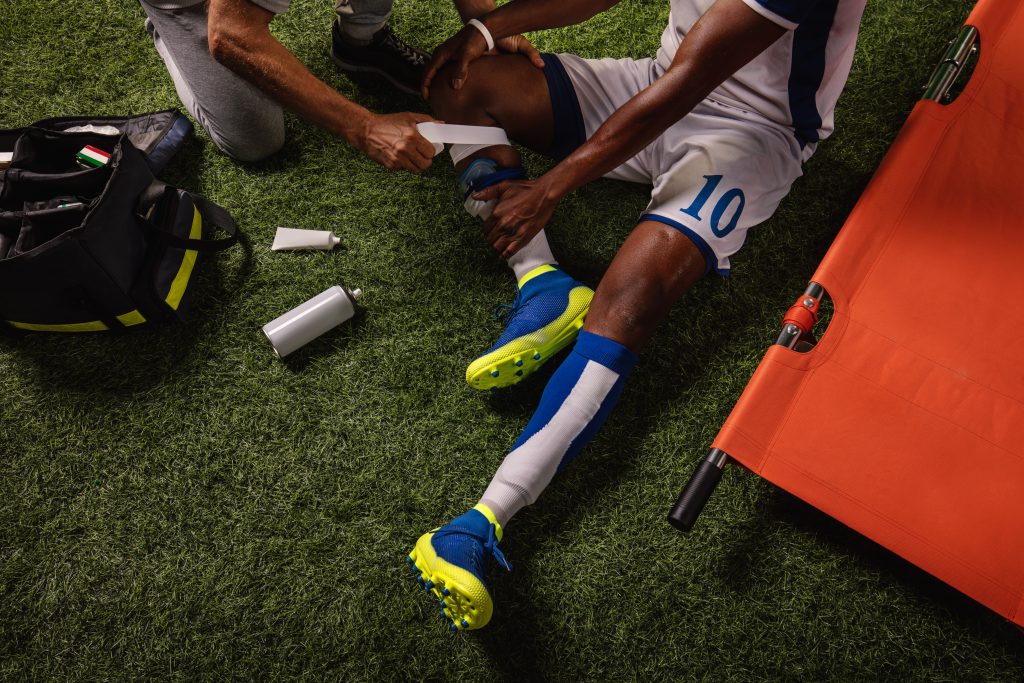Supporting injured athletes and their team: How to use a group dynamics model to protect social cohesion

When helping an athlete recover from injury, it is common for those in supporting roles (such as, coaches, practitioners or parents and guardians) to separate the needs of the injured athlete from the larger team. This makes sense, considering the athlete is dealing with the physical, emotional and psychological effects of rehabilitation (Clement et coll.,…
Sport Information Resource Centre, Coaching Association of Canada and Health Canada Launch Air Quality Health Index (AQHI) E-learning Module

Canada’s most trusted partner in advancing sport knowledge is raising awareness of the importance of the AQHI as it relates to athlete health and empowering sport leaders to make informed decisions about air quality. March 21, 2023 Ottawa – The Sport Information Resource Centre (SIRC), in partnership with Health Canada and conjunction with the Coaching…
Changing the narrative around concussions
Narratives around concussions can influence athletes’ concussion-reporting behaviours. While performance narratives like “play through the pain” promote concussion underreporting, safety narratives like “it will be better for you in the long run” promote concussion reporting. Coaches and organizations can encourage concussion reporting by shifting concussion messaging to focus on the importance of reporting for athletes’…
Supporting mentorship experiences for coaches
Coaches looking to improve their skills through mentorship programs will get the most out of the experience if they receive support through training and resources. And research shows that training for mentees can be just as helpful as training for mentors. Mentees’ experiences improve when they have a better understanding of their roles and responsibilities…
The Role of Women Coaches
Digital storytelling is a research tool that packs a powerful punch. Explore how this study used the unique tool to demonstrate the important role women coaches have in providing quality sport participation and positive development to youth athletes.
Coach development programming for athletes with disabilities
Coaches’ understandings of disability are crucial, not only to athlete development, but also to athletes’ experiences of inclusion and community. When athletes perceive coaches to be unaccommodating or uninformed, they may feel excluded. Leadership programs like the Steadward Centre’s Athletes2Coaches show how supporting athletes with disabilities in undertaking coaching development helps to fill a gap…
Enhancing role clarity
Research on role clarity highlights 4 characteristics that help to identify how well athletes understand their roles on a team. Coaches can help athletes to understand their role by ensuring they know (1) the scope of their responsibilities, (2) the necessary behaviours to fulfil their role, (3) how coaches will evaluate role performance, and (4) the…
The development and implementation of a mentoring program for parasport coaches

View the summary of this research here. Introduction and context Partnering with a provincial coaching association in Canada, we explored the experiences and perceptions of 15 mentor and 29 mentee coaches who participated in a formal virtual parasport coach mentorship program. Mentor coaches built a virtual relationship through mutual trust and respect and were perceived…
Establishing role expectations
A team’s success depends on how well each athlete understands and performs their role. To create a sustainable winning culture, coaches must give each team member, from starters to bench players, a set of behaviours that can become personally meaningful. Learn more about how to establish and communicate role expectations in the SIRC blog.
Empowering Black Women Coaches
For women coaches of colour, increasing self-confidence is a priority throughout professional development. Relationship-building with the team they mentor, continuous professional skill development, and speaking up about their shared experiences with like-minded individuals are integral to this process. Providing opportunities for women coaches of colour to learn from others through mentorship can build confidence and…